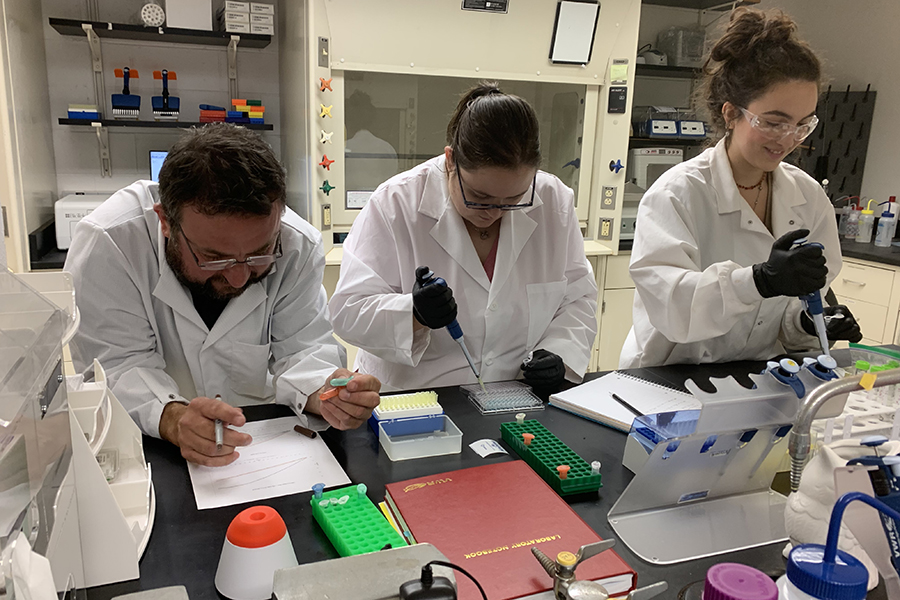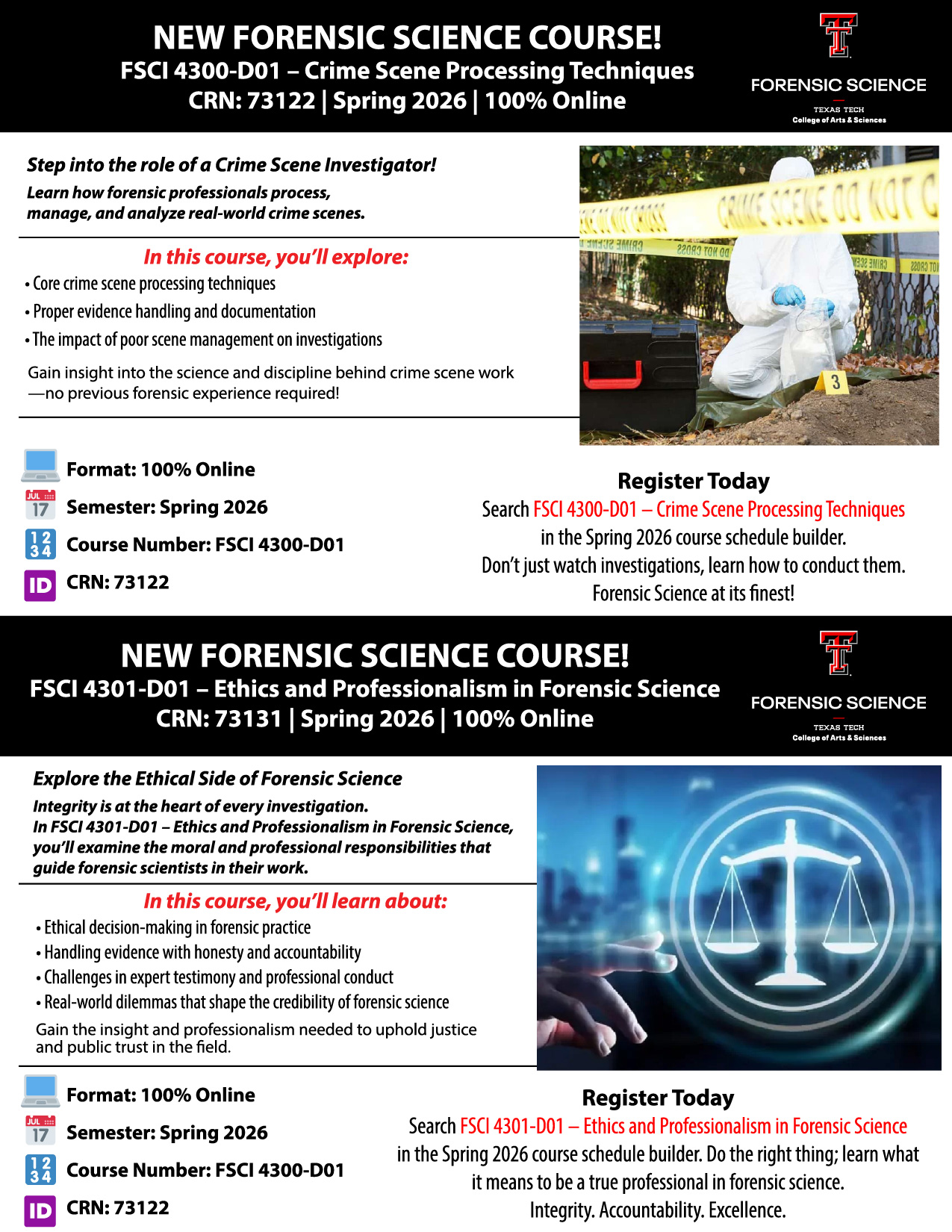Undergraduate Academic Overview

Forensic science, also known as criminalistics, is the application of any science to matters of the law. During criminal investigations, many evidence items are recovered from the crime scene to understand the who, what, where, when, and why of what happened. Forensic science is a broad field and can include fingerprints, blood stain patterns, hair and fibers, entomology, taphonomy (the study of decomposition and decay processes), or even drug chemistry.
Students will work cooperatively to work through virtual crime scenes and practical laboratory scenarios together and arrive at possible hypotheses as to what happened. This will expose the student to various evidence items in a routine crime scene scenario, while understanding the process of evidence collection and association/comparison processes.
The field site component will expose the student to a natural environment where different variables play a role in the decay of an animal carcass. The field site is strictly observational and will allow to students to collect variables such as temperature, humidity etc. on site to formulate possible hypotheses.
NEW SPRING 2026 COURSES

We are partners with the TRUE Scholars Program:
Undergraduate Minor
Undergraduate Catalog
Student Information Form
Fast Facts
Delivery: Face-to-Face
Hours to Completion: 18
Complements majors: Biology,
Chemistry, Psychology,
Criminology, and more…
Faculty with real-world forensic expertise
Flexible course options
Department of Environmental Toxicology
-
Address
Department of Environmental Toxicology, Texas Tech University, Box 41163, Lubbock, TX 79409 -
Phone
806.742.4567

